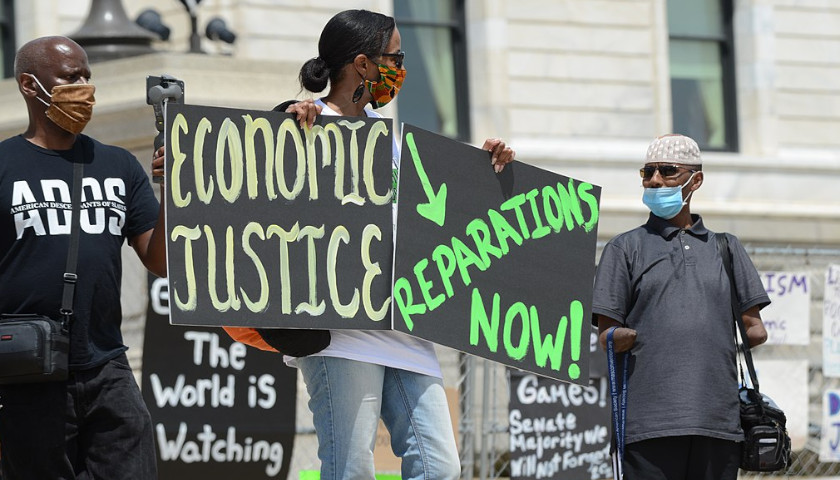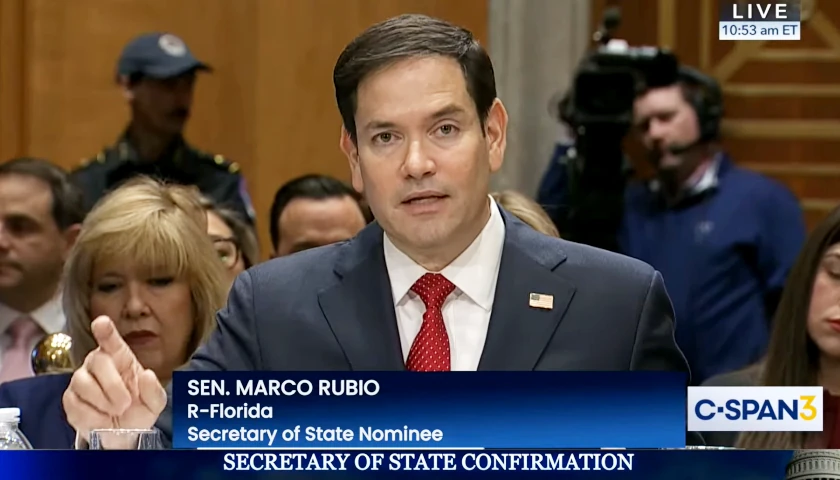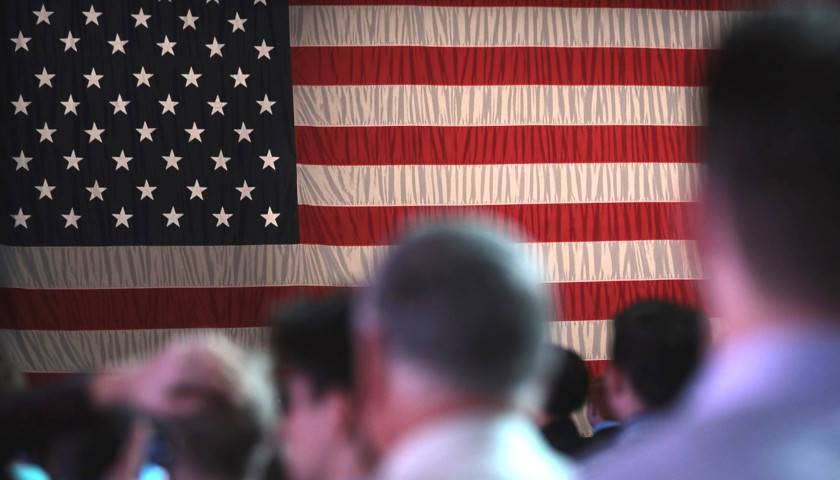by John Murawski
Until a few years ago, the idea of paying financial reparations to descendants of African slaves was dismissed as a fringe idea.
Now a notion that President Barack Obama once rejected as impractical is becoming public policy. California offers a dramatic example as officials there review a proposal that could pay in excess of $1 million each to some black residents, while more than a dozen U.S. municipalities are moving ahead with their own race-based programs to redress the legacies of slavery.
But the reparations movement is bigger and wider than that. Its rise in the United States has inspired a global movement committed to redressing perceived historical injustices to all manner of aggrieved groups. The causes include gay reparations, climate reparations, colonial reparations, university reparations – and Roman Catholic Church reparations for officially sanctioning colonization, slavery, and genocide in the New World. Scholars, activists and legislators across the United States and Europe and in former colonies are drawing on the logic and language of the black reparations movement and international human rights law to make the claim that their causes also deserve atonement and compensation for past wrongs.
Some warn that reparations open a controversial and bottomless Pandora’s Box, given history’s long catalogue of official policies that criminalized or discriminated against or sex workers, polygamists, Jews, Catholics, Slavs, and the Roma, among a vast array of potential claimants.
“If we pay reparations to black Americans, there’s no way it ends with black Americans,” said Wilfred Reilly, a conservative political science professor at Kentucky State University and author of “Hate Crime Hoax: How the Left is Selling a Fake Race War.” “Once you start paying people for things that happened in the past before their lifetimes, you’re setting precedent there.”
Reparations advocate William Darity, a Duke University economist and one of five economic advisers to the California Reparations Task Force, acknowledged that claims against the United States and other European nations that enslaved Africans could potentially lead to similar claims against Western and non-Western countries that, in a previous political configuration in past centuries, engaged in slaving, concubinage, and other practices that were formerly accepted but are now viewed with moral revulsion.
“I would encourage the people who are concerned about these histories of injustice to do the work and make the case,” Darity said, noting that the full scale of potential claims may not be fully appreciated. “It could be immense; it could be enormous.”
A number of new claims are now in play. Gay reparations have successfully won financial restitution for surviving victims of government persecution in the 20th century, including incarceration and maltreatment in Gen. Francisco Franco’s Spain and Nazi Germany (a policy that was continued for another quarter-century in West Germany). The U.S. movement, led by the Mattachine Society of Washington, D.C., seeks atonement and compensation for the surviving victims of the “Lavender Scare,” the postwar period of mass firings of thousands of gay federal civil servants in the United States who were suspected of being “perverts.”
Over the past decade, more than a dozen Caribbean nations have been seeking debt relief and other reparations from their erstwhile European colonizers for alleged native genocide and chattel slavery. Separately, a delegation that included New York Times writer and 1619 Project architect Nikole Hannah-Jones traveled to Rome last July to press the Vatican to commit the Catholic Church’s global resources to financially repairing the damage caused by the Church’s sanctioning of and benefitting from the trans-Atlantic slave trade.
Advocates of climate reparations seek trillions of dollars in aid from the wealthy nations of the so-called global North to the developing countries of the global South. In response to such claims, the European Union this year agreed to create a climate fund to mitigate the predicted ecological and humanitarian toll that will be caused by greenhouse gas emissions emitted by industrialized powers.
Gay reparations and  climate  reparations both have been the subject of recent books published by Oxford University Press in 2022 and 2021 and written by serious academics at reputable institutions, Bard College and Georgetown University. Foreign Policy magazine has run lengthy articles in support of  gay reparations  and  climate reparations just in the past few years.
Proposals have also been floated for reparations for abused psychiatric patients and residential aged care patients, as well as compensating all women, whether they work or not, for the alleged income gap – a sign that the concept continues gaining purchase. At the same time, thousands of private individuals have taken matters into their own hands, Venmo-ing cash transfers to black acquaintances or to online fundraising efforts to aid black people in crisis.
These causes draw on the academic literature, moral arguments, and growing success of the black reparations movement as a template for their own claims. Currently, more than 100 institutions are active in  Universities Studying Slavery, an international consortium whose members document their complicity in African slaving and develop reparations and remembrance projects. Last year the state of Virginia enacted a law requiring five public universities built with slave labor to provide scholarships or other benefits to descendants of enslaved Africans and African Americans.
The movements are organizing conferences, publishing historical research, and trying to sway public opinion. Nearly one out of three U.S. adults now support reparations for black people, and support has risen to three out of four African Americans, who said they would most benefit from scholarships and financial aid for businesses and homes, according to a 2022 study from the Pew Research Center.
But the question of who owes what to whom is complicated: According to Pew’s research, 27% of whites, 43% of Asians, 53% of Hispanics and 60% of black Americans believe that “descendants of families who engaged in the slave trade” bear “most or all” of the responsibility for repayment.
Illustrating the complexity of the issue, reparations projects around the country are using inconsistent eligibility criteria. The California Reparations Task Force has defined eligibility in such a way as to exclude people like Obama, whose late mother was white and late father was from Kenya, by limiting benefits to descendants of free blacks or enslaved blacks who lived in the United States in the 19th century.
But California’s definition currently doesn’t require the applicant to document that they have self-identified as African American, an oversight that could open the door for white people who have black slaves in their lineage, Darity said, unless the state’s task force revises the criteria in the final proposal this year.
California’s eligibility standards were controversial and passed narrowly on a 5-4 vote. Public figures last year impassionedly urged the task force to make reparations available to all black people.
“In essence, we’re saying people like that, who’re experiencing racism now — and you can’t tell me Barack Obama didn’t experience racism — could not be part of reparations,” said Reginald Jones-Sawyer, who represents South Los Angeles in the State Assembly, according to The New York Times. “The fact that we all came in, whether on a slave ship or a cruise ship — Guess what? We’re all in the same boat now.”
More broadly, reparations claims mutually reinforce each other as a common cause. They often argue their petitions are based on government policy that was systemic in targeting a victim class to the advantage of the dominant social group.
“The struggle for gay reparations in the United States is part and parcel of the struggles by previously marginalized groups – from women to African Americans to immigrants — for full acceptance into the American community,” according to the 2021 book, “The Case for Gay Reparations.”
The movements seem to have one thing in common: They focus on former European colonial powers, not on other parts of the world where slavery, homophobia, misogyny, and other abuses were (and often still are) practiced and tolerated, such as Africa and the Middle East.
When asked about this pattern, Darity said, “There might be a case to make against some of the Western African countries for their complicity in terms of expelling people into slavery.”
But Darity, one of the preeminent reparations advocates of his generation, also worries that excessive and redundant claims will appear absurd to the public and exhaust public sympathies, to the point that the movement will be undone by its own success.
“I know for some people it appears to be quite confusing as to who is asking for what from whom,” said Darity. “It is a potential problem that this simultaneous wave of reparations-based claims may actually undermine one another, or more narrowly undermine the effort on the part of black American descendants of U.S. slavery.”
For many Americans the word “reparations” is synonymous with a financial debt owed to African Americans for discriminatory policies that advocates refer to collectively as the legacies of slavery, such as the “war on drugs” that led to a sharp increase in incarceration of black men. Darity contends that the racial wealth gap in the United States was created by the federal government through a series of policies over centuries that erased black rights and limited government programs for wealth creation to whites. Among the examples Darity cites: the Homestead Act of 1862 that awarded more than 500 million acres of land, in 160-acre tracts in newly acquired U.S. territories, to settlers, farmers, miners, and speculators. More than 1.5 million white families acquired land under this program, and today some 46 million Americans descend from those original homesteaders, according to reparations advocates.
However, such historical interpretations advancing the cause of reparations are open to dispute. For example, anyone can find the online Britannica explanation of the Homestead Act of 1862, fact-checked by the editors of Encyclopaedia Britannica, that says the settlement policy “was also notable for the opportunity it gave  African Americans  to own land,” and  “enticed a migratory wave of thousands of African Americans from the South.” It was open to new immigrants, single women, and all races, attracting more than 25,000 black people to move to Kansas as part of the African American “Exoduster Movement” from the South. “The Homestead Act of 1862 gave thousands of ex-slaves the opportunity to own their own land, something that was unattainable in the South,” the Britannica entry says.
In this country, more than a dozen local efforts in communities like Evanston, Ill., Providence, R.I., High Point, N.C., and St. Louis, Mo., have proposed or approved a range of benefits, such as cash payments, housing vouchers, economic development, small business subsidies, workforce training, and free genealogical research to trace lineages to enslaved ancestors.
Officials in San Francisco, a progressive city that last year implemented the nation’s first guaranteed income program exclusively for transgender people, are weighing a separate reparations proposal to make lump sum payments of $5 million each to eligible black residents and supplement lower-income black households with $97,000 a year (in 2022 dollars) for “at least 250 years.”
Darity’s national proposal, outlined with co-author A. Kirsten Mullen in “From Here to Equality,” calls for closing the estimated $14.7 trillion racial wealth gap by paying each African American about $358,000, over a period of 10 years in a combination of annuities, trust accounts, endowments, and cash, all exempt from federal income taxes.
Among the impediments to achieving racial wealth parity in this country is the almost certain unconstitutionality of awarding financial benefits based on race. Darity said Congress would have to pass legislation affirming the legality of redress for national culpability against a specific racial group. The final obstacle for reparations advocates would be the U.S. Supreme Court, which at the present time is majority conservative.
“A Congress that makes a commitment to a reparations plan might also have to make a commitment to stack the court,” Darity said. “From my perspective, the Supreme Court is purely a political instrument, and it should be treated as such.”
Skeptical pundits like to joke that fat, short and ugly people will be next in line, and a British wag satirically suggested that Italy owes reparations to Wales for the plunder and pillage committed by the Roman Empire, tracing his grievances to Julius Caesar’s invasion of the British Isles in 55 BC. Critics also see American slavery and European colonization in the universal context of enslavement of Africans and Europeans in the Middle East and widespread slavery in antiquity.
In a similar vein, conservative news and opinion site Breitbart morbidly joked: “And dare we ask: Should there be compensation for victims of …   abortion?  Okay, okay, it might be hard to find anyone to compensate for  that  loss of life.” 
Reilly, the political scientist, said there are plenty of candidate groups that have been systematically excluded and marginalized at some point of the nation’s history. Examples of abuses include signing of poor Appalachian whites to exploitative indenture contracts, direct government seizure of Indian lands, government taking of white-owned properties to build national parks and scenic parkways, lynchings of Italian-Americans, expulsions and massacres of Chinese immigrants (including the destruction of Chinatown in Denver in 1880), and many others. Their stories, while not as widely known as anti-black racism in this country, include destruction of businesses and ruination of generational wealth.
“It’s going to continue ad infinitum,” said Jason Hill, a philosophy professor at DePaul University in Chicago, and author of the 2021 book, “What Do White Americans Owe Black People? Racial Justice in the Age of Post-Oppression.” “A trauma economy is going to produce an endless array of reparative justice claims in the future.”
Hill argues in his book that the United States effectively paid reparations to its black citizens in the 1960s with civil rights policies and anti-discrimination legislation, as well as President Lyndon Johnson’s Great Society social welfare programs. He blames these policies for incentivizing black people to adopt a racial identity rooted in victimhood and grievance – a phenomenon he calls “the cult of economic dependency” that provides fertile soil for reparations claims.
The United States already has paid reparations to some victims of U.S. government mistreatment. In the 20th century Congress approved tracts of land and payments to American Indian tribes and bands. In 1988 more than 125,000 Japanese-Americans received $20,000 each as restitution for being forced into internment camps during World War II. A decade ago, North Carolina created a $10 million fund to compensate people who were sterilized under a state eugenics program.
The international claims ultimately emanate from the same sweeping historical forces that gave rise to European colonialism and geopolitics, and birthed modernity itself and its offspring like the United States, enriching European white conquerors and their progeny at the expense of the cultures they conquered and sometimes obliterated.
“Injustice and oppression are global in scale. Why? Because trans-Atlantic slavery and colonialism built the world we live in,” Georgetown philosophy professor OlúfẹÌmi O. Táíwò wrote in “Reconsidering Reparations,” an academic treatise published by Oxford University Press last year. “If we want reparations, we should be thinking more broadly about how to remake the world system.”
Táíwò declined comment for this article, but his 2022 book argues that “climate justice and reparations are the same project: climate crisis arises from the same political history as racial injustice and presents a challenge of the same scale and scope.”
“The Case for Gay Reparations” notes that an apology is key for claimants because it establishes grounds for further concessions.
“As suggested by the Western European experience, an apology to the LGBTQ community is often a gateway for other reparations, including rehabilitation and compensation,” author Omar Encarnación wrote in Time magazine in 2021. Compensation is sought for the loss of wages and pensions that may have resulted from time spent in prison or in a mental institution because of homophobic laws and policies, he explained in The Nation.
The Caribbean CARICOM Reparations Commission and the National African American Reparations Commission both have promulgated 10-point platforms, listing demands such as affordable housing, substantial land tracts, creation of an African Holocaust Institute, psychological rehabilitation, and technology transfers, among others. Both movements advocate for a government-supported repatriation program to be made available to millions of individuals in the African diaspora who might wish to return to their ancestral homeland.
“Africans in America who choose to exercise the right to return will be provided with sufficient monetary resources to become productive citizens in their new home and shall be aided in their resettlement by a Black controlled agency funded by the federal government to perform this function,” states the National African American Reparations Commission (NAARC).
In this country, critics of the California reparations initiatives (and those of San Francisco, and the City of Berkeley, and Sacramento, and Los Angeles) frequently point out that neither California, which entered the union in 1850 as a free state, nor its cities had legalized slavery. But reparations advocates say the Golden State was complicit in the evils of slavery and its repressive aftermath.
“In 1852, California passed and enforced a fugitive slave law that was harsher than the federal fugitive slave law, and this made California a more proslavery state than most other free states,” according to the California Reparations Task Force’s Interim Report, issued last June. “California also outlawed non-white people from testifying in any court case involving white people.”
Certain areas of California, such as suburbs around Los Angeles and San Francisco, required blacks to leave by dusk, and state courts enforced racially-restricted housing covenants into the 1940s. Urban renewal projects razed entire black neighborhoods and business districts, while redlining policies enforced segregation, among the examples described in the Interim Report. The task force is due to make its proposal to the state legislature this year.
The premise of reparations is that ending discriminatory policies is insufficient to undo the multigenerational damage these policies caused.
Darity expressed frustration that reparations to African Americans have faced continual resistance in this country, a response he attributes to “good old-fashioned racism.”
He also attributes the recent popularization of reparations to the same ugly impulse.
“Why now? That’s the question you all should be asking yourselves,” Darity said, offering a theory he characterized as “truly cynical”:
“Ultimately, black Americans always serve as the mules for other peoples’ purposes.”
– – –
John Murawski reports on the intersection of culture and ideas for RealClearInvestigations. He previously covered artificial intelligence for the Wall Street Journal and spent 15 years as a reporter for the News & Observer (Raleigh, NC) writing about health care, energy and business. At RealClear, Murawski reports on how esoteric academic theories on race and gender have been shaping many areas of public life, from K-12 school curricula to workplace policies to the practice of medicine.
Photo “Reparations Now Poster” by Fibonacci Blue. CC BY 2.0.





